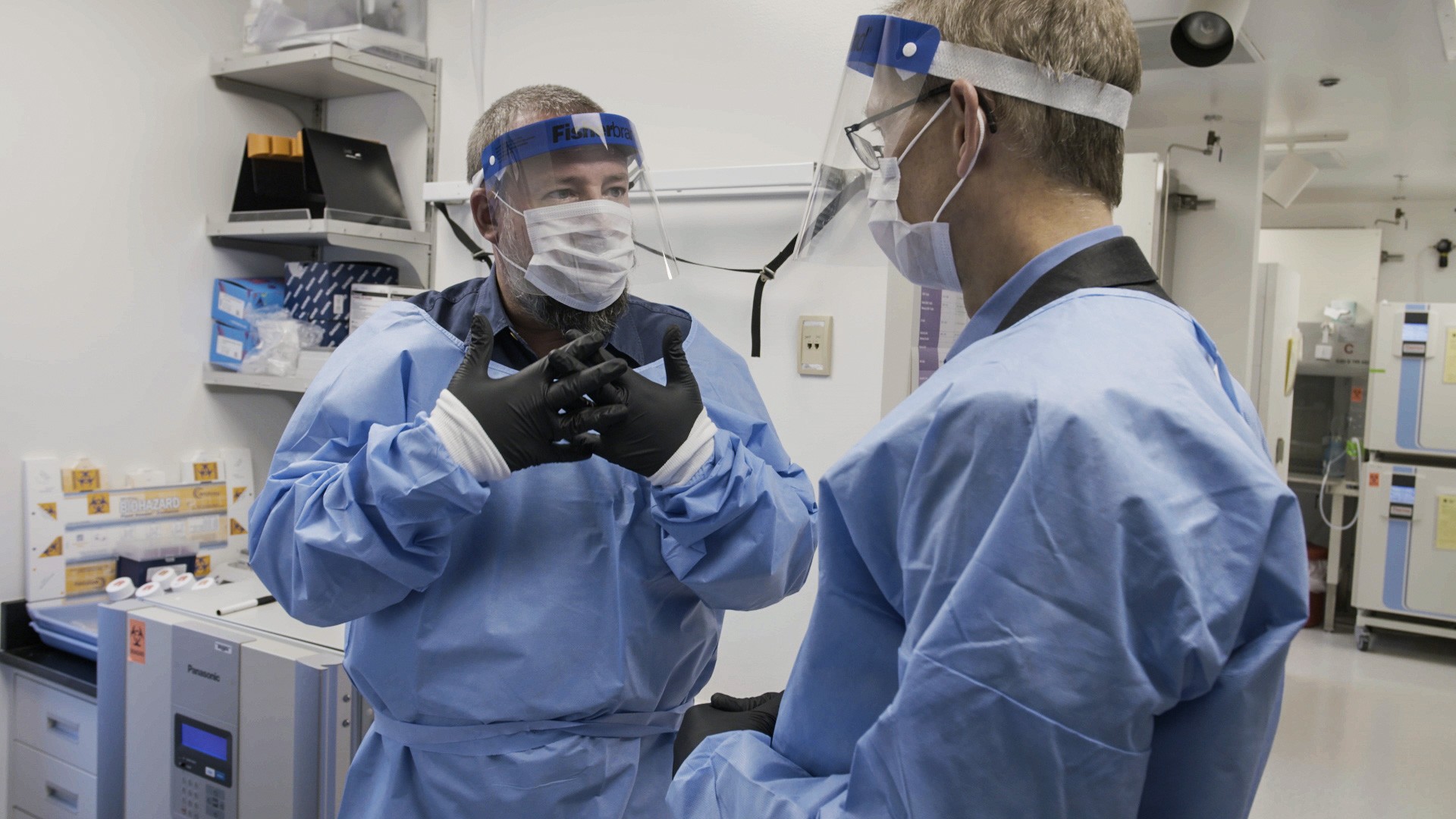“I wasn’t sick and I didn’t have any symptoms, but when you are pregnant you get tested at the clinic,” the 43-year-old Macheli told VICE Impact while looking out from her window, clutching a blanket around her shoulders to keep warm. “When I found out, I was scared of dying and leaving my children, since I don’t have anyone else to rely on nowadays. This was 10 years ago, back when you are HIV positive the feeling was you are gonna die soon enough. I kinda figured, ‘Wow, what am I gonna do? My kids, what are they gonna do?’”The single mother of four had already cared for her five siblings as they fell ill and then all passed from the virus. Her mother, who used to help with the children, also passed from AIDS. However, the doctors assured Macheli that she had more control over her fate, and with a strict adherence to the antiretrovirals (ARVs) that suppress the HIV virus and stop the progression of the disease, she could live a healthy and normal life.“The numbers are shocking, no question. But the good news is that the prevalence rate is staying high because more people who are HIV positive are on treatment and they are staying alive.”
Check out more videos from VICE:

When driving through the capital city of Maseru, almost every billboard serves as a reminder to get tested or practice safe sex, evidence of the immense effort to curb the virus in a place where over 25 percent of the population is infected. That rate that has not changed in 17 years, partially because of ARV availability.“The numbers are shocking, no question. But the good news is that the prevalence rate is staying high because more people who are HIV positive are on treatment and they are staying alive,” says Erica Dahl-Bredine, Country Representative for Catholic Relief Services, one of the main humanitarian organizations working to help combat the epidemic and helped support this reporting.
Nstoaki Macheli and her daughter.
With over 310,000 orphans in the country, nearly 45 percent of all households are caring for at least one orphan. Majoro adds, “By the time most parents die, much of the family resources have been expended on dealing with the disease. So the young children that come through are in such a helpless state.”Macheli, who relies on the income from selling fried dough at the bus stop in her village, is the sole provider for her four children. The much older father of her children is married to a woman in another village. “I told him of my status. That’s when he lost interest in me,” she said. Her experience of abandonment is reflective of a culture where men are validated by others for having extramarital affairs. Infidelity is such a driver of the spread of disease that the Ministry of Health delivers a public plea to stay faithful on the front of their headquarters.36.6 percent of women across the continent of Africa experience violence from an intimate partner in their lifetime. In Lesotho, it’s a sharp jump to 86.7 percent.
Almost every billboard serves as a reminder to get tested or practice safe sex.
“These girls are only thinking of survival. That leaves them with two options, try to find domestic work in South Africa, or find someone to take care of them."
A factory worker in Lesotho.
In addition to unequal power dynamics from relationships, both anecdotal and research data indicates men avoid responsibility for the epidemic they help spread. Among indicators, this is reflected in results of studies showing how both genders relate to testing and treatment. According to the latest nationwide survey, 81.5 percent of HIV positive women but only 71.0 percent of HIV positive men know their status. Data showing decreased viral loads according to gender indicates women are also more likely to adhere to treatment, as ARVs are proven to help decrease the amount of HIV in one’s system and prevent transmission.PEPFAR spent $80 million dollars this year in Lesotho alone to reduce and contain HIV through DREAMS, an acronymed program standing for ‘Determined, Resilient, Empowered, Aids-Free, Mentored, and Safe’ women. The program, which has a total budget of $385 million implemented across ten Sub-Saharan African countries, works to address the structural drivers that increase the risk of HIV in girls and young women. These include programs to strengthen communication in families, financial literacy, and school and factory based HIV prevention."What am I gonna do? My kids, what are they gonna do?"
